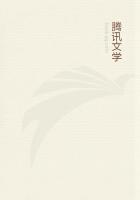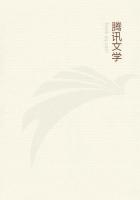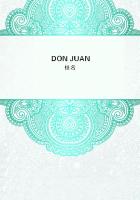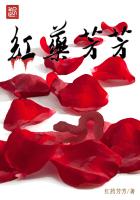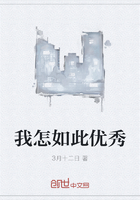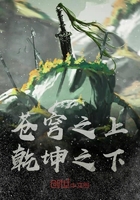LONG LIVE MIRTH.
The reader has probably not forgotten that a part of the Cour de Miracles was enclosed by the ancient wall which surrounded the city, a goodly number of whose towers had begun, even at that epoch, to fall to ruin. One of these towers had been converted into a pleasure resort by the vagabonds. There was a drain-shop in the underground story, and the rest in the upper stories. This was the most lively, and consequently the most hideous, point of the whole outcast den. It was a sort of monstrous hive, which buzzed there night and day.
At night, when the remainder of the beggar horde slept, when there was no longer a window lighted in the dingy fa?ades of the Place, when not a cry was any longer to be heard proceeding from those innumerable families, those ant-hills of thieves, of wenches, and stolen or bastard children, the merry tower was still recognizable by the noise which it made, by the scarlet light which, flashing simultaneously from the air-holes, the windows, the fissures in the cracked walls, escaped, so to speak, from its every pore.
The cellar then, was the dram-shop. The descent to it was through a low door and by a staircase as steep as a classic Alexandrine. Over the door, by way of a sign there hung a marvellous daub, representing new sons and dead chickens,*with this, pun below: ~Aux sonneurs pour les trépassés~,--The wringers for the dead.
* ~Sols neufs: poulets tués~.
One evening when the curfew was sounding from all the belfries in Paris, the sergeants of the watch might have observed, had it been granted to them to enter the formidable Court of Miracles, that more tumult than usual was in progress in the vagabonds' tavern, that more drinking was being done, and louder swearing. Outside in the Place, there, were many groups conversing in low tones, as when some great plan is being framed, and here and there a knave crouching down engaged in sharpening a villanous iron blade on a paving-stone.
Meanwhile, in the tavern itself, wine and gaming offered such a powerful diversion to the ideas which occupied the vagabonds' lair that evening, that it would have been difficult to divine from the remarks of the drinkers, what was the matter in hand. They merely wore a gayer air than was their wont, and some weapon could be seen glittering between the legs of each of them,--a sickle, an axe, a big two-edged sword or the hook of an old hackbut.
The room, circular in form, was very spacious; but the tables were so thickly set and the drinkers so numerous, that all that the tavern contained, men, women, benches, beer-jugs, all that were drinking, all that were sleeping, all that were playing, the well, the lame, seemed piled up pell-mell, with as much order and harmony as a heap of oyster shells. There were a few tallow dips lighted on the tables; but the real luminary of this tavern, that which played the part in this dram-shop of the chandelier of an opera house, was the fire.
This cellar was so damp that the fire was never allowed to go out, even in midsummer; an immense chimney with a sculptured mantel, all bristling with heavy iron andirons and cooking utensils, with one of those huge fires of mixed wood and peat which at night, in village streets make the reflection of forge windows stand out so red on the opposite walls. A big dog gravely seated in the ashes was turning a spit loaded with meat before the coals.
Great as was the confusion, after the first glance one could distinguish in that multitude, three principal groups which thronged around three personages already known to the reader.
One of these personages, fantastically accoutred in many an oriental rag, was Mathias Hungadi Spicali, Duke of Egypt and Bohemia. The knave was seated on a table with his legs crossed, and in a loud voice was bestowing his knowledge of magic, both black and white, on many a gaping face which surrounded him. Another rabble pressed close around our old friend, the valiant King of Thunes, armed to the teeth.
Clopin Trouillefou, with a very serious air and in a low voice, was regulating the distribution of an enormous cask of arms, which stood wide open in front of him and from whence poured out in profusion, axes, swords, bassinets, coats of mail, broadswords, lance-heads, arrows, and viretons,* like apples and grapes from a horn of plenty. Every one took something from the cask, one a morion, another a long, straight sword, another a dagger with a cross--shaped hilt. The very children were arming themselves, and there were even cripples in bowls who, in armor and cuirass, made their way between the legs of the drinkers, like great beetles.
* An arrow with a pyramidal head of iron and copper spiral wings, by which a rotatory motion was communicated.
Finally, a third audience, the most noisy, the most jovial, and the most numerous, encumbered benches and tables, in the midst of which harangued and swore a flute-like voice, which escaped from beneath a heavy armor, complete from casque to spurs. The individual who had thus screwed a whole outfit upon his body, was so hidden by his warlike accoutrements that nothing was to be seen of his person save an impertinent, red, snub nose, a rosy mouth, and bold eyes. His belt was full of daggers and poniards, a huge sword on his hip, a rusted cross-bow at his left, and a vast jug of wine in front of him, without reckoning on his right, a fat wench with her bosom uncovered. All mouths around him were laughing, cursing, and drinking.
Add twenty secondary groups, the waiters, male and female, running with jugs on their heads, gamblers squatting over taws, merelles,* dice, vachettes, the ardent game of tringlet, quarrels in one corner, kisses in another, and the reader will have some idea of this whole picture, over which flickered the light of a great, flaming fire, which made a thousand huge and grotesque shadows dance over the walls of the drinking shop.

